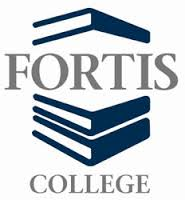What do they do?
Perform limited clinical duties under the direction of a dentist. Clinical duties may include equipment preparation and sterilization, preparing patients for treatment, assisting the dentist during treatment, and providing patients with instructions for oral healthcare procedures. May perform administrative duties such as scheduling appointments, maintaining medical records, billing, and coding information for insurance purposes.
Also known as:
Certified Dental Assistant (CDA), Certified Registered Dental Assistant, Dental Assistant (DA), Expanded Dental Assistant, Expanded Duty Dental Assistant (EDDA), Expanded Functions Dental Assistant (EFDA), Oral Surgery Assistant, Orthodontic Assistant (Ortho Assistant), Registered Dental Assistant (RDA), Surgical Dental Assistant
-
1.5%
Change
Ranks #50 in job growth rate1,650Job Openings
Ranks #13 in net job growth
Looking for colleges that offer a specific major? Use the College Match Tool to find your best-matched schools and discover your estimated Net Price!
- Some college, no degree (37%)
- High school diploma equivalent (27%)
- Associate's degree (20%)
- Bachelor's degree (10%)
- Less than high school diploma (3%)
- Doctorate or Professional Degree (2%)
- Master's degree (1%)
People in this career often have these skills:
- Active Listening - Giving full attention to what other people are saying, taking time to understand the points being made, asking questions as appropriate, and not interrupting at inappropriate times.
- Speaking - Talking to others to convey information effectively.
People in this career often know a lot about:
- Customer and Personal Service - Knowledge of principles and processes for providing customer and personal services. This includes customer needs assessment, meeting quality standards for services, and evaluation of customer satisfaction.
- Medicine and Dentistry - Knowledge of the information and techniques needed to diagnose and treat human injuries, diseases, and deformities. This includes symptoms, treatment alternatives, drug properties and interactions, and preventive health-care measures.
- English Language - Knowledge of the structure and content of the English language including the meaning and spelling of words, rules of composition, and grammar.
- Administration and Management - Knowledge of business and management principles involved in strategic planning, resource allocation, human resources modeling, leadership technique, production methods, and coordination of people and resources.
- Administrative - Knowledge of administrative and office procedures and systems such as word processing, managing files and records, stenography and transcription, designing forms, and workplace terminology.
- Computers and Electronics - Knowledge of circuit boards, processors, chips, electronic equipment, and computer hardware and software, including applications and programming.
- Sales and Marketing - Knowledge of principles and methods for showing, promoting, and selling products or services. This includes marketing strategy and tactics, product demonstration, sales techniques, and sales control systems.
People in this career often have talent in:
- Near Vision - The ability to see details at close range (within a few feet of the observer).
- Oral Expression - The ability to communicate information and ideas in speaking so others will understand.
- Oral Comprehension - The ability to listen to and understand information and ideas presented through spoken words and sentences.
- Speech Recognition - The ability to identify and understand the speech of another person.
- Written Comprehension - The ability to read and understand information and ideas presented in writing.
- Deductive Reasoning - The ability to apply general rules to specific problems to produce answers that make sense.
People in this career often do these activities:
- Clean medical equipment.
- Prepare medical instruments or equipment for use.
- Assist practitioners to perform medical procedures.
- Maintain medical records.
- Inventory medical supplies or equipment.
- Operate medical equipment.
- Explain technical medical information to patients.
- Teach medical procedures or medical equipment use to patients.
- Interview patients to gather medical information.
- Record vital statistics or other health information.
- Administer basic health care or medical treatments.
- Schedule patient procedures or appointments.
- Process medical billing information.
- Make patient-assistive devices or device models.
- Fit patients for assistive devices.
This page includes data from:

 Occupation statistics: USDOL U.S. Bureau of Labor Statistics Occupational Employment Statistics
Occupation statistics: USDOL U.S. Bureau of Labor Statistics Occupational Employment Statistics
 Videos: CareerOneStop, USDOL/ETA and the Minnesota Department of Employment & Economic Development
Videos: CareerOneStop, USDOL/ETA and the Minnesota Department of Employment & Economic Development








